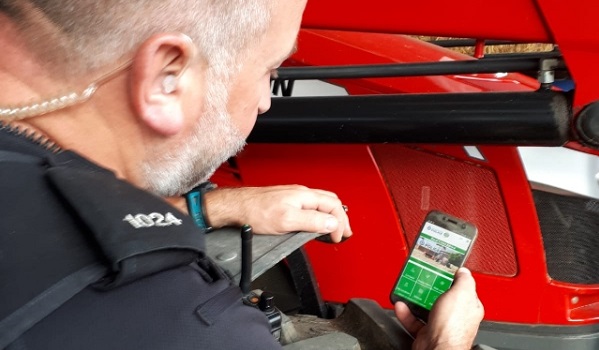New technique enables drugs breath tests
A study from the Swedish medical university Karolinska Institutet
presents a new technique that for the first time makes drug testing
possible through exhaled air.

A study from the Swedish medical university Karolinska Institutet presents a new technique that for the first time makes drug testing possible through exhaled air.
By examining people who had received emergency care for an amphetamine overdose, Swedish researchers have found that in all cases there were traces of amphetamine and metamphetamine in the exhaled breath, which could pave the way for drugs breath tests.
Traditionally, drugs tests have been carried out using urine and blood samples, said Professor Olof Beck at the Karolinska Institutet, who led the study. In recent years, weve been trying to find simpler alternatives to using saliva, which, unfortunately, has proved difficult. Our results open the way for a new kind of drugs test, which is simple and safe to conduct and that requires no integrity-violating monitoring or medical staff.
In his research, Professor Beck highlights that drug abuse is a huge social problem and drugs tests are used widely and comprehensively by the healthcare and social services, the legal system, at workplaces and schools. He says reliable drugs tests are important for making correct diagnoses and for keeping tabs on drug users to ensure that they are following their prescribed treatment. Alcohol use can easily be checked in a breathalyser and the technology is available for conducting measurements in a way that does not violate a persons integrity.
In the UK, testing by police officers, at the roadside for example, is typically carried out using instant-readout disposable drug detection kits for taking a saliva swab or skin wipe. Testing in saliva shows consumption in the last couple of hours and testing on the skin shows consumption over the past couple of days.
An instrument like a breathalyser for drugs would be the optimal solution for the efficient control of drug use by motorists, says Professor Beck.
Human breath is known to contain a large number of substances, including non-volatile molecules.
Measurements of other substances in the exhaled breath are also available for diagnosing diseases such as cancer, asthma and diabetes.
In this present study, which is published in the latest issue of The Journal of Analytical Toxicology, scientists at Karolinska Institutet have developed a new and unique method for collecting narcotic substances from the exhaled breath.
They did this by asking subjects to breathe into a specially-designed mask for ten minutes; the exhaled air was collected and passed through a filter, which trapped the narcotic substances. These filters were then analysed using combined liquid chromatography and tandem mass-spectrometry, techniques that are highly sensitive and reliable.
The researchers took samples from 12 patients who had been admitted into emergency care with toxic symptoms after having taken amphetamines. The samples were taken after the effects of the drug had worn off and with the permission of the regional ethical review board in Stockholm. The ingestion of the drug was confirmed in the patient group through urine and blood samples.
In all cases, the researchers were able to ascertain the presence of amphetamine and metamphetamine (a narcotics-classed central-stimulating substance similar to amphetamine) in the exhaled breath as well. The measured excretion rate was between 0.2 and 139 pg/min, which is very low compared to the blood and urine. No amphetamine or metamphetamine were detected in samples from healthy controls.
The results are convincing and very promising, said Professor Beck. The study is the first to report the possibility of measuring drugs in the exhaled breath and represents a unique, unexpected finding.
We now have to move on to other drugs that are of interest for this type of breath test and to develop the sampling and analysis methods.
*Adapted from materials provided by Karolinska Institutet: New technique enables drugs tests via exhaled breath.


